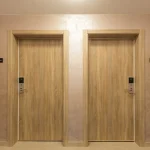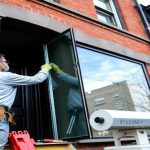If you worry about the cleanliness and overall “health” of your home, you probably focus on cleaning and disinfecting surfaces, washing linens every week, and maybe even mixing natural cleaning products like baking soda and lemon.
However, it’s easy to ignore a major factor in your routine: indoor air quality. Many people don’t realize how the air inside their homes can be even more polluted than the air outside.
If you want to keep a clean home and focus on your health all year round, prioritizing indoor air quality is a must, because there are hidden dangers you need to account for if you’re going to change your cleaning routine.
Let’s dive into it!
Why does the quality of the air inside your house matter?
Indoor air pollution is real, and it can come from everyday activities: cooking, cleaning, and even breathing, which can change the “health level” of the air inside a room.
The main factor to consider is that over time, mold, pet dander, dust, and chemicals from household products can build up, and you can develop allergies, asthma, and fatigue without ever connecting these reactions to the air quality.
With Americans spending 90% of their time indoors, evidence suggests that concentrations of some pollutants are often 2 to 5 times higher than typical outdoor concentrations. So, keeping a high level of air quality isn’t just about comfort and peace of mind, but it also involves keeping you and your loved ones healthy.
5 sources of indoor air pollution
Many people are surprised when they discover how many hidden sources of indoor air pollution exist, and with good reason! If you clean your home regularly, in theory, you shouldn’t have to worry about it. But reality says different:
- Household cleaners and sprays: A lot of these products contain chemicals that linger in the air well after you finish your cleaning routine.
- Furniture and carpets: both these elements can release “volatile organic compounds”, also known as “VOCs”, for years, for example, from paint and lacquers.
- Cooking: When you fry, bake, and even boil food, you’re releasing tiny particles of food and their gases in the process.
- Pets: Even if you’re not allergic to pet hair, they can lower the air quality with pet dander, and even track in dirt from outside.
- Poor ventilation: if you don’t air all your rooms at least once a day, pollutants tend to accumulate pretty quickly, and you have to breathe in a stagnant, unhealthy environment without realizing it.
Keeping your home’s air healthy all year round
It’s easy to keep a high level of air quality when you know where to start and what to do. Here are some practical steps you can take:
Air your rooms daily
Yes, even in winter! Fresh air is essential, and it’s worth airing for a while to reduce air pollutants.. Whenever possible, open all your windows, especially after cooking and cleaning. If you don’t have that chance, you could install exhaust fans in rooms like the kitchen and the bathroom, which also help move out the polluted air.
Get an air purifier
Investing in a good-quality air purifier could be key to your well-being, especially if you live in an apartment without many windows or where it’s simply not possible to open your windows every day.
Look for models with HEPA filters, because fine particles like pollen, smoke, and dust will not get through. If you want to invest in something good, some air purifiers neutralize gases and odors, which provides even better protection.
Get non-toxic products
If you’re worried about your cleaning products, you could gradually switch to eco-friendly ones. These release fewer harmful chemicals, and they’re just as effective. Alternatively, you could also make your own! Vinegar, baking soda, and lemon juice are three of the main ones in almost every homemade cleaning product.
Be smart about cleaning
Vacuuming frequently with a vacuum with a HEPA filter, dusting surfaces with damp clothes to trap dust and not spread it around, and washing bed linens in hot water are key. However, don’t forget about often overlooked items, like curtains, upholstered furniture, and behind large appliances.
Seeking professional help
If you start noticing weird, persistent smells, too much dust, or frequent respiratory diseases in both yourself and your family members, consult with a professional. They could detect hidden problems, like severe mold that grows unseen, or even radon gas leaks. You can use a VPN from Surfshark to do your online research in certain geographical areas and get better results.
To sum up
Your house is supposed to be a refuge of safety, comfort and healthy. However, air pollutants could really affect your health and it’s not easy to correlate these two things. Staying generally aware, airing your rooms every day and creating a friendly cleaning routine are essential to keep a great home without dangers. Don’t wait until there’s an emergency!






